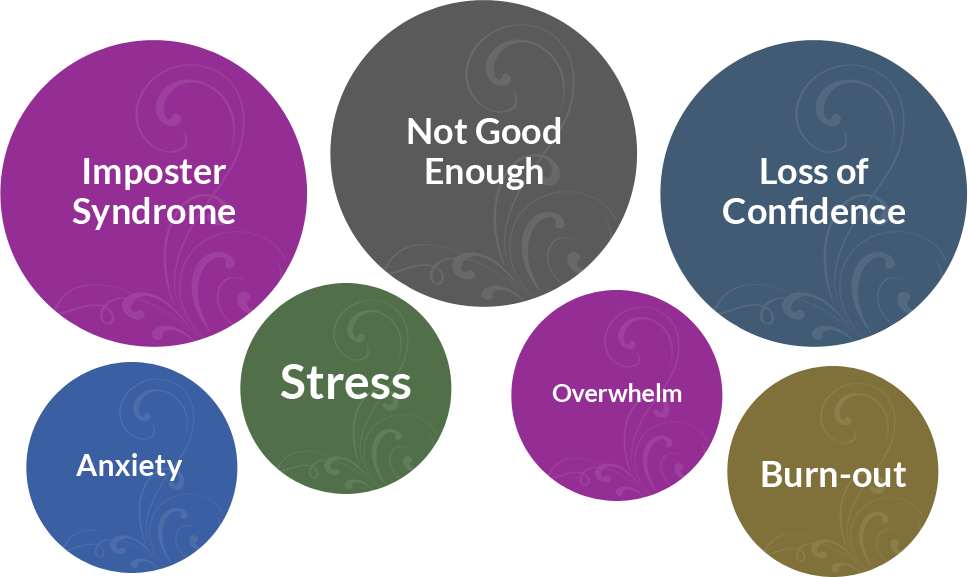Are you struggling with any of these work-related problems? Don’t worry.I promise you that, with the right help, your crisis will pass, no matter how bad it feels right now.


Have you ever felt like you don’t belong and you’re your colleagues are going to discover you’re a fraud, and you don’t actually deserve your job and accomplishments? If so, you’re not alone. An estimated 70% of men and women experience these impostor feelings at some point in their lives, according to a review article published in the International Journal of Behavioural Science. This syndrome includes many factors and feelings and affects people in a vast array of industries and sectors.
This could be one of the feelings associated with Imposter Syndrome but it is often cited in its own right. If you are suffering with low self-esteem, you may feel that you are not good enough to fulfil your working role or to deserve success. Very often there will be a limiting belief driving this negative feeling, which is likely to have developed in childhood and is often out of conscious awareness.
There can be many reasons why you have lost your confidence at work. We will explore the causes together and re-build your belief in yourself.
So many factors at work can lead to an increased level of anxiety. Some include: dealing with work conflicts, meeting deadlines, relationships with co-workers, managing staff, long working hours, having a demanding boss, a workload that is overly high and a lack of direction on tasks. If the anxiety is left unchecked, it can undermine your ability to work and lead to serious health problems.
Described by the World Health Organisation as a modern epidemic, it is estimated that in 2020, of British adults in employment – a staggering 79% commonly experience work-related stress. This is 20% higher than in 2018. Symptoms include feeling anxious, irritable or depressed, apathy, loss of interest in work, problems sleeping, fatigue and trouble concentrating. Work-related office politics (37%) are the most common cause of work-related stress, followed by lack of interdepartmental communications (34%), and the work performance of others (33%) What’s troubling you, specifically?
When feeling out of control, with too much to do and not enough time to do it, it’s easy to feel overwhelmed. Ironically, this often results in doing nothing at all, as you start to feel you can’t handle anything anymore. It’s important to regain a sense of calm and have the resilience to take action, however small.
a state of emotional, physical, and mental exhaustion caused by excessive and prolonged stress. It occurs when you feel overwhelmed, emotionally drained, and unable to meet constant demands..